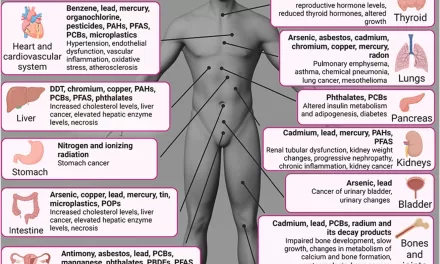A recent study published in JAMA Network Open suggests that while low doses of lithium aspartate may be ineffective in treating the debilitating symptoms of long Covid, higher doses could hold promise. The study, led by Thomas J. Guttuso, a professor of neurology at the University of Buffalo, highlights the potential of this treatment in addressing persistent fatigue and brain fog, two of the most common and troubling symptoms associated with long Covid.
Long Covid continues to affect an estimated 17 million people in the United States and approximately 65 million worldwide. Despite growing recognition of the condition, effective treatments remain elusive. Guttuso’s work, however, offers a glimmer of hope for patients seeking relief.
“It’s a negative study with a positive twist,” said Guttuso, referring to the mixed results of the research.
Initial Observations Spark Interest in Lithium Aspartate
The interest in lithium aspartate as a potential treatment for long Covid began with an unexpected success story. Guttuso had initially recommended low-dose lithium aspartate (5 milligrams per day) to a patient who had been suffering from persistent symptoms of fatigue and brain fog. To his surprise, the patient reported a near complete resolution of these symptoms within just a few days of starting the treatment.
Encouraged by this case, Guttuso recommended the same low-dose treatment to nine other long Covid patients, of whom 90% reported significant improvements in their fatigue and brain fog symptoms.
“Based on those nine patients, I had high hopes that we would see an effect from this randomized controlled trial,” said Guttuso. However, when the trial was conducted using 10-15 milligrams per day of lithium aspartate, no significant difference in symptom improvement was observed compared to the placebo group.
Promising Results from Higher Doses
Though the randomized controlled trial did not yield the expected results, a subsequent patient offered new insights. After increasing the dosage to 40 milligrams per day, this patient experienced a significant reduction in fatigue and brain fog symptoms, prompting Guttuso to launch a dose-finding study to explore the effects of higher doses of lithium aspartate.
The preliminary results were promising. Of the three participants who completed the dose-finding study, all reported greater improvements in their symptoms at doses of 40-45 milligrams per day.
“This is a very small number of patients, so these findings can only be seen as preliminary,” cautioned Guttuso. “Perhaps achieving higher blood levels of lithium may provide improvements to fatigue and brain fog in long Covid.”
A Way Forward
While the findings are not yet conclusive, they open the door to further investigation into the potential of lithium aspartate as a treatment for long Covid. With millions of people worldwide struggling to recover from the lingering effects of the disease, Guttuso’s research offers a hopeful avenue for future exploration. The next step will likely involve larger-scale studies to determine the safety and efficacy of higher doses of lithium aspartate in this patient population.
For now, the research highlights the complexity of treating long Covid and underscores the need for continued innovation in managing its symptoms.












